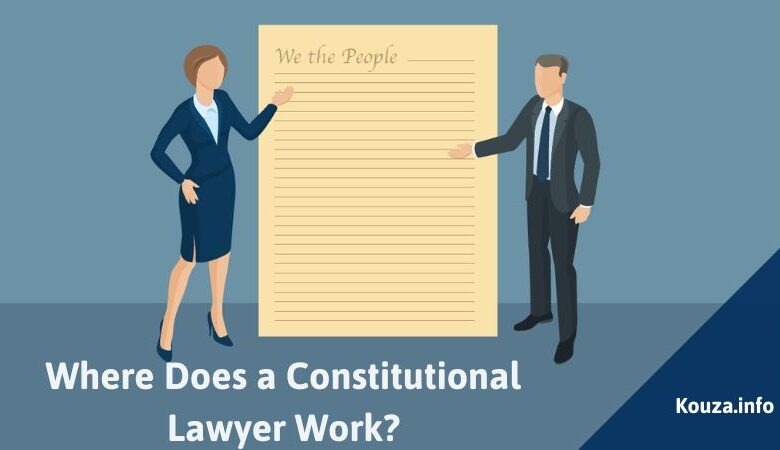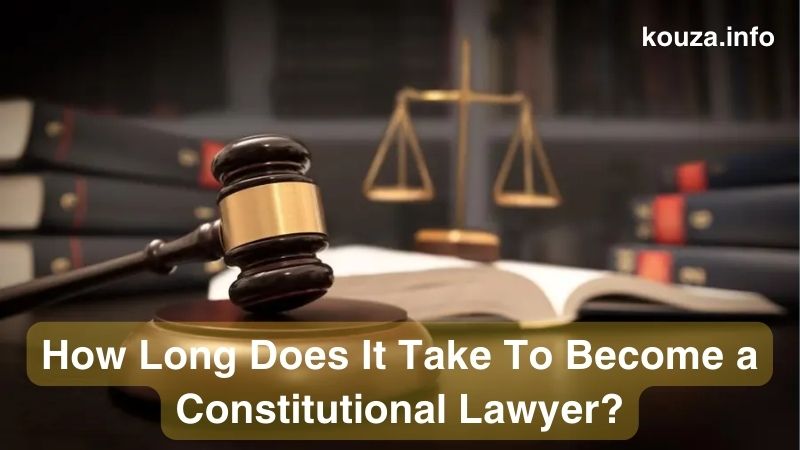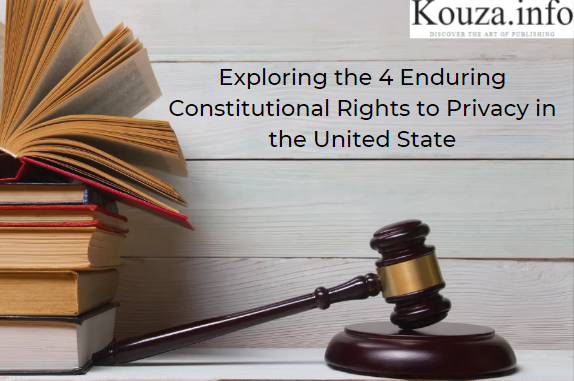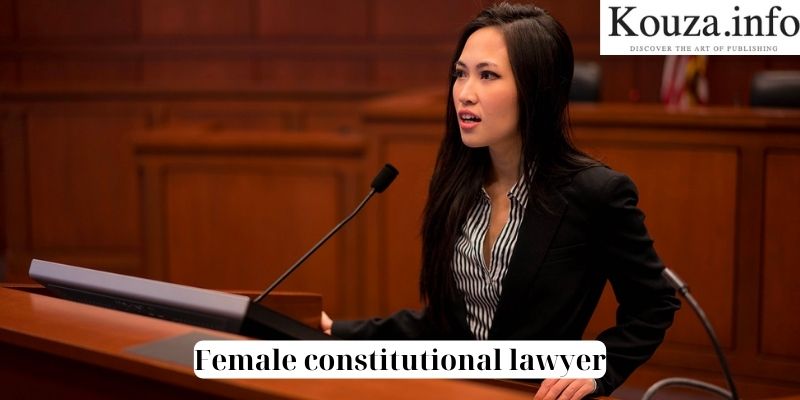
Constitutional law, the backbone of legal systems in democratic societies, governs the relationships between different entities within a state, including the executive, legislature, and judiciary. Constitutional lawyers, therefore, play a critical role in interpreting, defending, and challenging laws and policies that impact fundamental rights and governance structures. But where does a constitutional lawyer work? This article from Kouza.info delves into the various professional arenas where constitutional lawyers can pursue their careers, showcasing the breadth and depth of opportunities available in this field.
Where Does a Constitutional Lawyer Work?
Law Firms
Many constitutional lawyers find their niche in private law firms, particularly those specializing in constitutional litigation, civil rights, and governmental law. These firms often handle high-profile cases that challenge or defend constitutional principles. For instance, law firms might represent clients in cases involving First Amendment rights, equal protection under the law, or due process issues. Constitutional lawyers in these settings engage in rigorous legal research, draft briefs and motions, and argue cases in court. The work is demanding but rewarding, as it often involves significant matters that can set precedents and influence public policy.

Government Agencies
Another prominent answer to the question, “where does a constitutional lawyer work?” is within government agencies. Constitutional lawyers serve in various capacities at the local, state, and federal levels. At the federal level, many work for the Department of Justice (DOJ), where they might be involved in defending the constitutionality of federal laws, prosecuting cases that involve federal constitutional issues, or providing legal advice to other federal agencies. State attorneys general offices also employ constitutional lawyers to address state-specific constitutional matters, such as state constitutional amendments, voter rights issues, and state sovereignty disputes.
Non-Profit Organizations
For those passionate about civil rights and social justice, non-profit organizations offer an ideal work environment. Non-profits like the American Civil Liberties Union (ACLU), Human Rights Watch, and the Center for Constitutional Rights employ constitutional lawyers to advocate for individual rights and freedoms. These organizations often engage in strategic litigation aimed at protecting or expanding civil liberties. Constitutional lawyers here might work on issues such as freedom of speech, racial justice, LGBTQ+ rights, and privacy concerns. They not only litigate but also participate in public education and policy advocacy.

Academic Institutions
Another setting where a constitutional lawyer might work is in academia. Law schools and universities provide a platform for constitutional lawyers to teach, conduct research, and write on constitutional matters. Academic roles allow constitutional lawyers to shape the next generation of legal minds by teaching courses on constitutional law, civil liberties, and related subjects. They also contribute to the scholarly discourse through research and publication. This path is particularly appealing to those who enjoy delving deeply into theoretical and doctrinal aspects of constitutional law and who seek a more contemplative environment.
Judicial Clerks
Judicial clerkships offer an excellent starting point for newly graduated constitutional lawyers. Working as clerks for judges, particularly in appellate courts and the Supreme Court, provides invaluable experience. Clerks assist judges by conducting legal research, drafting opinions, and preparing case summaries. This role offers a unique behind-the-scenes look at the judicial process and a deep dive into complex constitutional issues. It also provides a strong foundation for future careers in any of the aforementioned areas.
Advocacy Groups and Think Tanks
Advocacy groups and think tanks are another significant arena where constitutional lawyers work. These organizations focus on policy research, legal reform, and lobbying efforts related to constitutional issues. Constitutional lawyers in these settings might draft policy papers, provide testimony before legislative bodies, or engage in public speaking and education campaigns. Examples include the Cato Institute, the Brookings Institution, and the Heritage Foundation. Lawyers in these roles often strive to influence public policy and legal standards through scholarly analysis and advocacy.

International Organizations
In an increasingly interconnected world, constitutional lawyers also find opportunities in international organizations. Entities such as the United Nations, the International Commission of Jurists, and various human rights organizations employ constitutional lawyers to address global constitutional and human rights issues. These roles might involve working on constitutional reforms in emerging democracies, advocating for human rights protections, or participating in international legal proceedings. This path is ideal for those interested in the global impact of constitutional law and who wish to work on issues that transcend national borders.
Corporate Sector
While less common, some constitutional lawyers work within the corporate sector. Large corporations often face constitutional issues, particularly those related to regulatory compliance, free speech, and due process in commercial contexts. Constitutional lawyers in this setting might provide legal advice on navigating complex regulatory environments, defending against governmental overreach, or ensuring that corporate policies comply with constitutional standards. This role can be particularly relevant in industries like technology, media, and communications, where constitutional issues frequently arise.
Public Defenders and Legal Aid
Public defender offices and legal aid organizations are also places where constitutional lawyers work. These roles involve defending the rights of individuals who cannot afford private legal representation, often in criminal cases where constitutional rights are at stake. Public defenders ensure that their clients receive fair trials, protect against unlawful searches and seizures, and advocate for due process. Legal aid organizations extend similar protections in civil contexts, helping clients navigate issues like housing rights, immigration, and family law.
Policy Advisers
Policy advising is another avenue where constitutional lawyers can make a significant impact. Working as policy advisers for legislators, governmental bodies, or political candidates, constitutional lawyers help shape laws and policies from their inception. They provide expertise on constitutional constraints and implications, draft legislation, and ensure that proposed laws adhere to constitutional principles. This role is crucial in maintaining the balance between effective governance and the protection of individual rights.
Independent Consultancy
Finally, some constitutional lawyers work as independent consultants, offering their expertise to various clients, including governments, corporations, non-profits, and international organizations. Consultants might be called upon to provide expert testimony in court cases, advise on constitutional reforms, or conduct training and workshops on constitutional issues. This path offers flexibility and the opportunity to work on a diverse range of projects, often with significant impact.
Conclusion
So, where does a constitutional lawyer work? The answer is as varied as it is impactful. From law firms and government agencies to non-profits and international organizations, constitutional lawyers find themselves at the heart of critical legal and policy issues. Whether advocating for civil rights, advising on legislative matters, or teaching the next generation of lawyers, constitutional lawyers play a pivotal role in upholding and interpreting the foundational principles of our legal systems. The diverse career paths available ensure that those passionate about constitutional law can find a niche that aligns with their interests and skills, making a significant contribution to society.
Conclusion: So above is the Where Does a Constitutional Lawyer Work? Exploring Diverse Career Paths article. Hopefully with this article you can help you in life, always follow and read our good articles on the website: kouza.info
Related Articles
-
The Role of a Female Constitutional Lawyer in Modern SocietyFebruary 16, 2024




